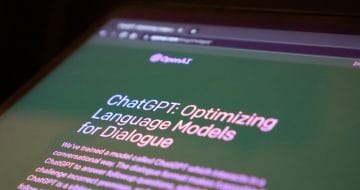New report highlights adoption concerns within the profession

Nearly half of UK lawyers believe the legal profession should self-regulate the use of artificial intelligence (AI), a new report has found.
This finding is part of a new report by Thomson Reuters, which examines the UK legal market and key trends affecting its performance.
Researchers found that 48% of lawyers in UK law firms and 50% of in-house lawyers want the legal profession to lead any regulatory programme related to the use of generative AI tools, such as ChatGPT.
Meanwhile, a little over a third (36%) of lawyers at UK firms believe government regulation is necessary, while the proportion of in-house lawyers who share this view is slightly higher at 44%.
In comparison, only 26% of lawyers in the US and Canada support government oversight of AI.
The research also found that over a quarter (27%) of legal professionals reported that their firm of department is using or planning to use generative AI, with top uses being document review, legal research, document summarisation, contract drafting and knowledge management.
Interestingly, 38% of UK law firm respondents said they feared clients might object to their use of generative AI tools, despite no UK clients surveyed stating they had specifically requested firms not to use it.
The key barriers to the widespread adoption of AI tools identified include the potential for inaccurate responses, concerns about data security, and the need to comply with relevant laws and regulations.
Last month, Legal Cheek reported that Klarna, the Swedish fintech company providing payment processing services for online businesses, is encouraging its in-house lawyers to use ChatGPT to save time by creating first drafts of common types of contracts.
“The big law firms have had a really great business just from providing templates for common types of contract,” said Selma Bogren, the company’s senior managing legal counsel.”But ChatGPT is even better than a template because you can create something quite bespoke.”
Bogren went on to add that “instead of spending an hour starting a contract from scratch or working from a template,” she “can tweak a ChatGPT draft in about ten minutes.”


